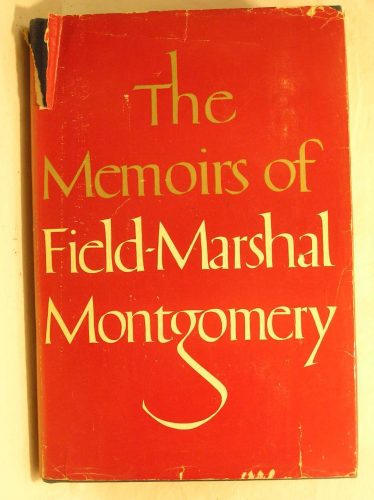(Read the entire exchange here.)

Some Chicago Boyz know each other from student days at the University of Chicago. Others are Chicago boys in spirit. The blog name is also intended as a good-humored gesture of admiration for distinguished Chicago School economists and fellow travelers.
In 1751, Lord Chesterfield decided that the time had come for England to switch from the Julian to the Gregorian calendar. In a letter to his son, he explained how he got this done:
I consulted the best lawyers and the most skillful astronomers, and we cooked up a bill for that purpose. But then my difficulty began: I was to bring in this bill, which was necessarily composed of law jargon and astronomical calculations, to both which I am an utter stranger. However, it was absolutely necessary to make the House of Lords think that I knew something of the matter; and also to make them believe that they knew something of it themselves, which they do not. For my own part, I could just as soon have talked Celtic or Sclavonian to them as astronomy, and they would have understood me full as well: so I resolved to do better than speak to the purpose, and to please instead of informing them. I gave them, therefore, only an historical account of calendars, from the Egyptian down to the Gregorian, amusing them now and then with little episodes; but I was particularly attentive to the choice of my words, to the harmony and roundness of my periods, to my elocution, to my action. This succeeded, and ever will succeed; they thought I informed, because I pleased them; and many of them said that I had made the whole very clear to them; when, God knows, I had not even attempted it. Lord Macclesfield, who had the greatest share in forming the bill, and who is one of the greatest mathematicians and astronomers in Europe, spoke afterward with infinite knowledge, and all the clearness that so intricate a matter would admit of: but as his words, his periods, and his utterance, were not near so good as mine, the preference was most unanimously, though most unjustly, given to me.

I read the memoirs of Field Marshall Bernard Law Montgomery a year or two ago, and I recently discussed the book elsewhere, so I pass these thoughts along here.
It was very good. Anyone with an interest in the Second World War and early Cold War should read it. Monty’s involvement in setting up the postwar military alliance with the United States was a surprisingly interesting part of the book which I knew little about. His personal connection with senior US military personnel proved to be very important.
Montgomery, like Slim, was an unglamorous commander, and he is probably underrated. They both focused on the basics, particularly adequate supply, and they both also recognized the limitations of what their own men and equipment could do.
Monty is castigated, often by American writers, for not being more dashing. He preferred meticulous planning, and sticking to the script, and he was willing to forgo targets of opportunity. He recognized that to try to operate in a more extemporaneous way would be to play to the strength of the Germans. They were good at that sort of thing, but he recognized that his own army was not. Recognizing that armies have national character seems to be a feature of the thinking of senior British commanders.
Wolseley in his memoirs thinks in a remarkably similar way, offering his unsentimental comments about the relative strengths and weaknesses of his own English, Scottish, and Irish troops versus those of their opponents. Montgomery similarly understood that the Germans were good at certain things, the English were good at other things: Do what you are good at.
Montgomery also has a reputation for being egotistical and self-serving, which certainly has some basis in fact. Nonetheless, his book comes off as reasonably fair, and seems to be honest, with the single major exception of his discussion of the way the Normandy campaign played out. He claims in the book that it was always his intention to wage an attrition battle against the Germans on the left flank of the lodgment with his own troops, so that the Americans could break out on the right. I don’t believe a word of this. His repeated, major ground offensives, such as Goodwood, failed because the Germans outfought him. Monty was not intentionally waging an attrition battle. He wanted the American to wear down the Germans, and to break out with his own army on the left. That was, so I speculate, always his actual plan. But of course the enemy always gets a vote.
Monty had good reason for wanting it to play out this way, with the main breakout on the left. Montgomery always paid attention to the larger political aspects of the war. My guess is that his goal was always to clear the channel and North Sea coasts, and capture the exits from the Baltic to secure Britain’s position, including capturing Antwerp, and lock up the Russians. This would be consistent with centuries of proven British strategic thinking and practice. It was almost an axiom of British strategy and international politics that it is essential to neutralize or secure control of the Low Countries, the most likely and most threatening locale for a foreign invasion base to attack Britain. This was a perpetual British imperative, particularly in wartime. This would explain why Monty was willing to roll the dice on Market Garden, to regain the initiative for the left-wing of the Allied advance.
Montgomery is improperly understood, largely by American readers, as a foil to the American commanders in the Second World War. We view him as a jarring note in an otherwise predominantly American story. But this is not an enlightening way to look at Montgomery. He is better understood in the context of British history, British strategic thinking, and long-standing British military practice.
I have been wondering why the political left, and to some extent the right, has been so enthusiastic about Muslim immigration. Islam is just not compatible with the liberal traditions of the West. So why the continued efforts to import Muslims ?
There’s no economic argument for importing Syrians or Turks. Muslims are overwhelmingly represented on the welfare roles. In Denmark, people from MENA countries make up 5% of the population, but consume 40% of welfare benefits. This is a story across Europe. It is not just the new arrivals. Turks in Germany have been there for a couple of generations and have been the worst performing economic group in the country. Estimates put the total working population at 20%, while the rest live off welfare benefits. Then there is the issue of sky high Muslim crime rates.
The incident in London yesterday made clear that assimilation is not going to solve the problem. The terrorist was British born. Most of the sexual abusers in Rotherham were British born to Muslim immigrants.
In September 2012, investigations by The Times based on confidential police and social services documents, found that abuse had been much more widespread than acknowledged.[24][25] It uncovered systematic sexual abuse of white girls by British Asian men (mostly of Pakistani origin)[26] in Rotherham for which people were not being prosecuted.
Not only were they not being prosecuted but the British authorities had been covering up the abuse for years Why ?
Is there popular support for importing these people, despite their uselessness as citizens? Again, there’s no data to suggest this is the case. European leaders could have put the issue to the voters, but they fanatically avoid it. In fact, anyone who dares run on the issue is branded a Nazi. Politicians love democracy when they are assured of winning. They avoid it when they are assured of losing. Therefore, it is safe to assume they don’t think this is a winner for them.
So, the politicians seem to favor the immigrants over their own citizens. Why ?